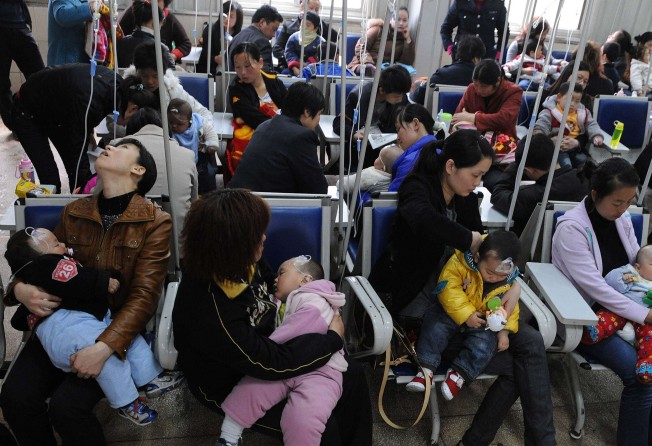Hepatitis vaccination efforts in Asia and the Pacific have been a great public health success
Shin Young-soo says vaccinations for hepatitis B across the Western Pacific have saved millions of lives, and the programme must be continued

Vaccinations for hepatitis B have averted more than seven million deaths and 37 million chronic infections that otherwise would have occurred across the Western Pacific region in the lifetime of children born between 1990 and 2014, according to a study in the scientific journal Vaccine.
Hepatitis B is transmitted primarily to newborn babies and children under five years old. It may go unnoticed for decades, until the virus causes major liver damage. Averting millions of deaths and chronic infections in a region that is heavily burdened by this disease is a tremendous public health achievement.
Today, the region, home to a quarter of the world’s population, still bears 40 per cent of global deaths from viral hepatitis. Efforts by countries in the region to prevent and control the disease have been nothing short of Herculean.
Millions of lives have been saved by ambitious immunisation goals that the 37 countries and areas in the Western Pacific have adopted since 2005. Today, 30 of 37 countries and areas have reached the goal to cut chronic hepatitis B virus infection among children to below 2 per cent. Routine immunisation will further decrease the chronic infection rate for the entire population.
This is news worth celebrating as July 28, World Hepatitis Day, comes round. Immunisation is delivering a great public health success. Two things are needed to build on this.
First, we must ensure every newborn receives a hepatitis B birth-dose vaccination and booster doses. In 2014, 92 per cent of infants in the region received the full hepatitis B vaccine, well above the global average of 82 per cent. Even with this coverage, nearly two million newborns are left unprotected annually.
Further, with hepatitis B still so widespread, even a temporary relaxation of vigilance and drop in vaccine coverage could kill thousands. Such was the case in one member state where due to unfounded fears about the safety of the vaccine, and a resulting drop in vaccine coverage, over 90,000 additional chronic infections are expected to take hold.
Second, immunisation programmes must be closely integrated into a comprehensive approach to all forms of hepatitis, which collectively kill more people globally than TB, HIV or malaria.
Immunisation will never be a complete solution, and new drugs that allow lifelong control of the virus and cure 90 per cent of hepatitis C patients are essential complements to an overall approach. Immunisation, however, will be the cornerstone in the battle to defeat hepatitis B and the foundation on which to incorporate care and treatment.
Dr Shin Young-soo is WHO regional director for the Western Pacific